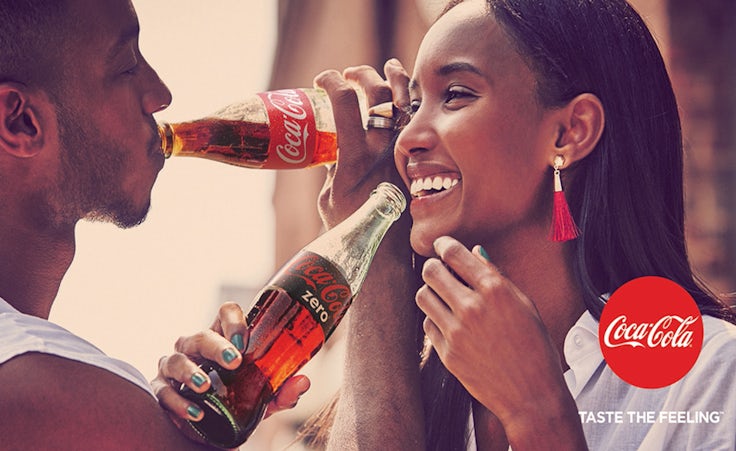Coca-Cola: ‘We are not the cause of the obesity crisis, we are a solution’
Coca-Cola has once again waded into the sugar-tax debate as Leendert den Hollander, VP and general manager of Coca-Cola Enterprises, defended the soft drinks industry.

Coca-Cola hopes that the new campaign will make consumers more aware of its lower or no sugar options.
Speaking today (May 11) at the British Retail Consortium’s Retail Symposium 2016 event, den Hollander said that the British soft drink industry had achieved a 14% calorie reduction over the last four years and contributed £11bn annually to the economy.
He was also keen to highlight that Coca-Cola has been on a health-conscious journey for “some time”, using its launch of Diet Coke in 1982 as an example.
READ MORE: Why soft drink brands should embrace the sugar tax
“Every single day, 46 million people enjoy a soft drink yet if you type ‘soft drinks and health’ into Google you’ll get 37 million hits so there’s clearly something going on and it is something we have to tackle,” he told delegates.
“But we’ve been on a journey for healthier options for some time now. We’re not the cause of the obesity crisis but a solution.”
Giving an insight into CCE’s future strategy on sugar, den Hollander said that offering “even more” new low calorie products would be the “way forward”.
Digital focus during Euro 2016
Den Hollander also reiterated CCE’s commitment to digital. He said that 58% of Brits currently turn to the web for inspiration for recipes. To tap into this trend, the Coca-Cola brand will offer unique recipes, that change cuisines based on the teams competing, through its digital channels during the Euro 2016 tournament.
There will be a “local feel” to Coca-Cola’s digital activity around the football tournament, with den Hollander urging brands to be “contextual and targeted” by adapting their campaigns uniquely from market to market.
Brands must also accept that consumers are now their main content creators, according to den Hollander.
He concluded: “Rewind 10 years or so and as marketers we thought we could create all the content for the consumer. There was an assumption that the marketer defined everything a consumer sees about a brand.
“But in the digital age, marketers now produce about 10% of the content. The rest is all created by the consumer through likes, posts and engagement. You have to accept that reality and tap into it to succeed.”





